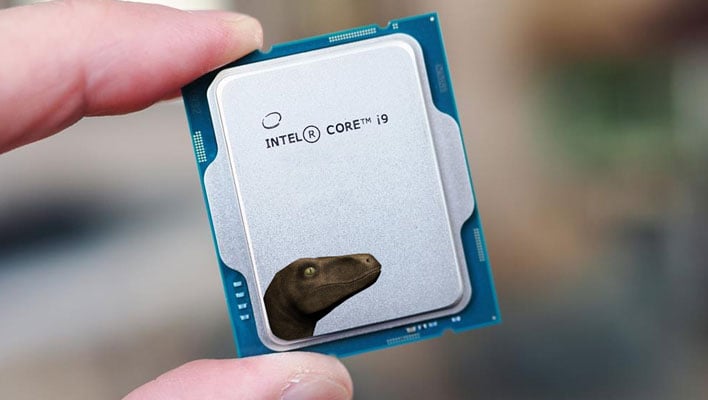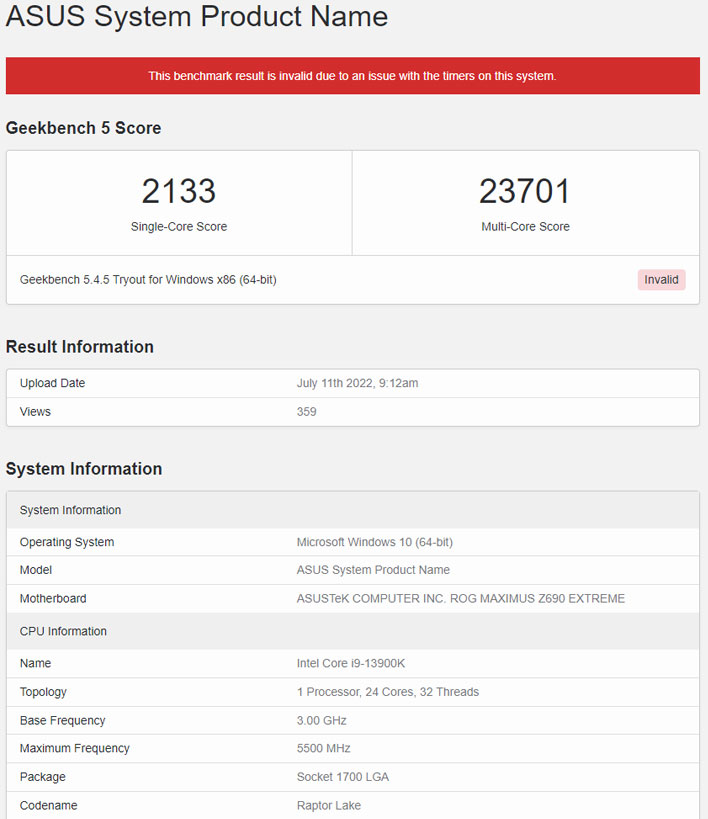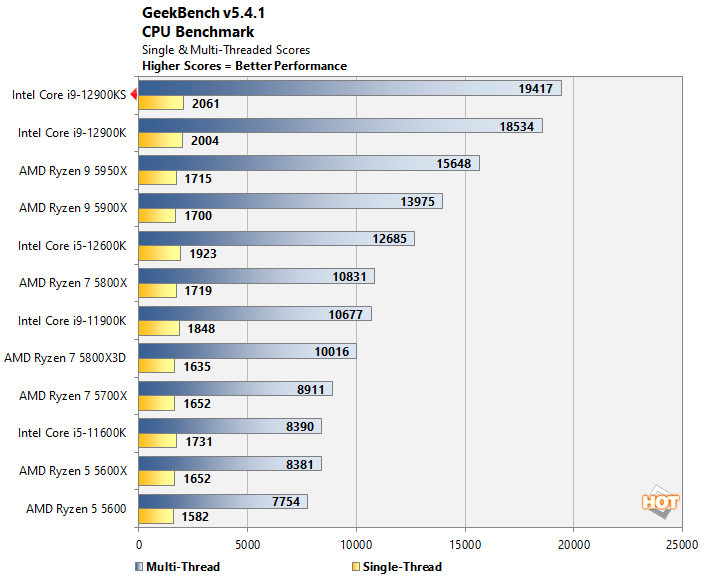Intel Core i9-13900K Raptor Lake CPU Trounces Alder Lake And Zen 3 In Early Benchmark

We highly doubt that Intel will slap a picture of a carnivorous Velociraptor on its 13th Gen Raptor Lake CPUs, but if newly listed single-core and especially multi-core scores on Geekbench turn out to be accurate, the chip maker might want to consider it. Both scores, purportedly obtained from a soon-to-be flagship Core i9-13900K processor, leave the current-gen crop in the dust. We just don't know if they're real.
Benchmarks leaks always should be taken with a block of salt anyway, but in this case, there's a disclaimer highlighted in red at the top of the listing that says, "This benchmark result is invalid due to an issue with the timers on this system."
As far as we know, there are multiple reasons that could invalidate a benchmark run and trigger that kind of disclaimer. It could be something as benign as the system firmware not being updated for Raptor Lake, or wires getting crossed between the system and Geekbench's ability to properly recognize the platform and settings. And on the flip side, it could be benchmark manipulation at play.
Whatever the case, keep that in mind when looking at the benchmark scores below...

Source: Geekbench
Whoever uploaded this score did so from a system equipped with an ASUS ROG Maximus Z690 Extreme motherboard and 32GB of DDR5-6400 RAM. As far as the CPU goes, the Core i9-13900K is recognized as a 24-core/32-thread processor with a 3GHz base frequency and 5.5GHz turbo clock.
It's worth noting that ASUS recently started pushing out BIOS updates for its 600 series motherboards, to support Raptor Lake (as has ASRock). So it's at least plausible that this is a legitimate entry from an engineering sample.
In the benchmark run, the Core i9-13900K posted a single-core score 2,133 and a multi-core score of 23,701. Again, we can't rule benchmarking shenanigans, but if these scores are accurate, they bode reasonably well for Raptor Lake. Here's how they compare to our own collection of Geekbench scores...

We plucked this chart from our Core i9-12900KS review. If we were to plot the leaked Core i9-13900K scores, the CPU would ascend to the top of the graph. Looking at the top chips, the Core i9-13900K's single-core score is 3.5 percent higher than the Core i9-12900KS, 6.4 percent higher than the Core i9-12900K, and 24.4 percent higher than AMD's Ryzen 9 5950X.
Even bigger gaps can be observed in the multi-core scores. Looking at those numbers, the Core i9-13900K scored 22 percent higher than the Core i9-12900KS, 27.9 percent higher than the Core i9-12900K, and 51.5 percent higher than the Ryzen 9 5950X. Not too shabby.
We can hear the groans and grumbles over what amounts to an apples-to-oranges comparison with these Raptor Lake scores, though. For one, the 24-core/32-thread Core i9-13900K benefits from having more cores to throw at workloads—it consists of 8 P-cores and 16-E cores, the latter of which is twice as many as the Core i9-12900K/KS. Meanwhile, the Ryzen 9 5950X sports 16 cores and 32 threads.
It's also worth pointing out that Raptor Lake is a next-gen release and, as far as AMD goes, it will be more useful to compare performance against it's next-gen Zen 4 lineup. We'd love to do that, but when you're dealing with leaks, data is limited, so we can only work with what's available.
Hopefully we'll see some Zen 4 performance leaks in the near future. Both Zen 4 and Raptor Lake are on track to release this year.

